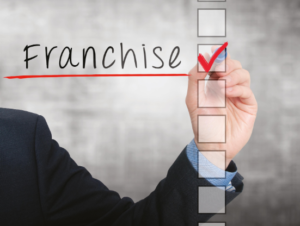
Video games have become more than just a pastime. They are a cultural phenomenon, shaping social interactions, entertainment habits, and even spending behaviors. One factor that strongly influences gamer behavior is promotions offered by video games stores. From limited-time discounts to exclusive bundles, these promotions affect decisions, excitement levels, and even loyalty. Understanding their impact provides insight into how gamers interact with both digital and physical marketplaces.
Game Store Promotions That Drive Impulse Purchases
Promotions often trigger immediate buying decisions. Gamers are naturally drawn to deals that promise value. Limited-time sales or “buy one, get one free” offers can push a player to purchase titles they might not have considered otherwise. The video games store promotions tap into this impulse behavior. Gamers feel the thrill of getting something extra or at a lower price. This excitement often translates to more frequent visits to both online and offline stores.
Exclusive Deals Boost Engagement
Video games stores sometimes offer exclusive content or early access to certain games. These promotions make gamers feel special and more connected to the store. Players may join loyalty programs or subscribe to newsletters to stay updated on exclusive offers. The result is higher engagement, as gamers return regularly to see what new promotions are available. Stores benefit from increased traffic, while gamers enjoy unique perks.
Seasonal Promotions and Spending Patterns
Seasonal promotions, such as holiday sales or summer discounts, significantly impact spending patterns. Video games stores strategically plan these campaigns around major events or releases. Gamers often anticipate these sales, delaying purchases until promotions arrive. This behavior shows how promotions can influence not only what gamers buy but also when they buy. It creates a rhythm in the gaming economy that both retailers and players follow closely.
Psychological Effects of Marketing Tactics
Gamers respond to marketing techniques like countdown timers, limited stock alerts, and bundle pricing. Video games store promotions often use these tactics to create urgency and excitement. The psychological pressure can increase the perceived value of a deal. Gamers may rationalize additional purchases as necessary to avoid missing out. This influence goes beyond simple discounts, shaping both perception and action in subtle but powerful ways.
Community Influence and Social Sharing
Promotions don’t only affect individual gamers—they also impact communities. Players often share news of deals with friends or online groups. Video games stores benefit from this organic marketing, as social recommendations drive further engagement. Gamers feel part of a shared experience when discussing promotions, planning purchases together, or participating in multiplayer events connected to special offers. The social aspect amplifies the reach and effect of each promotion.
Long-Term Loyalty and Brand Perception
Frequent promotions can strengthen loyalty toward specific video games stores. Gamers who consistently find good deals may prefer one store over another. Positive experiences during promotions—like smooth transactions or extra perks—enhance brand perception. Over time, these small incentives build trust and a sense of reliability. Gamers remember where they received value and are more likely to return for future purchases.
Conclusion
Video games store promotions play a significant role in shaping gamer behavior. From impulsive purchases and seasonal planning to psychological effects and community influence, the reach of promotions is wide. They not only affect what and when gamers buy but also build engagement, loyalty, and brand perception. Understanding these dynamics highlights the power of thoughtful promotions and the evolving relationship between gamers and stores in the modern entertainment landscape.





